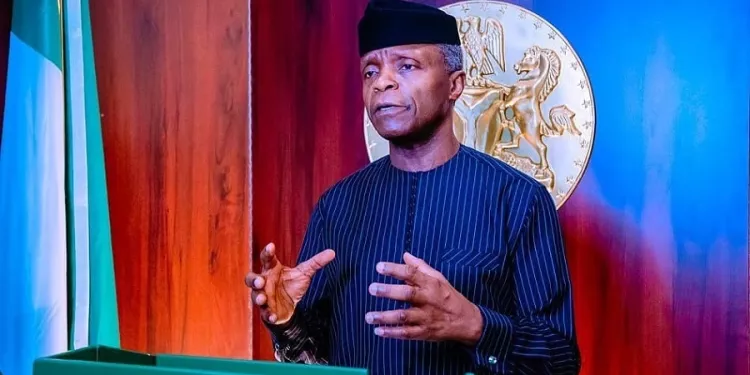Nigeria’s Vice President, Professor Yemi Osinbajo, has revealed that the Federal Government had spent about N50 billion toward positioning export-oriented businesses in Nigeria.
This was made known by Osinbajo at a 2-day National Conference on Non-oil Export with the theme, ‘Export for Survival: Optimising Nigeria’s Non-oil Export Potential’, organised by the Nigerian Export Promotion Council (NEPC).
The conference had set out to provide a platform for stakeholders in the non-oil export sector to ventilate viewpoints on current and emerging issues affecting the sector.
What the Vice President is saying
Osinbajo said the Federal Government is determined to improve on the competitiveness of our businesses within what is poised to become one of the largest regional single markets in the world.
The vice president said, “This is why our Export Development Fund, under the NEPC, has committed N50 billion to help position export-oriented Nigerian businesses.
“This will enable them to play competitively within this growing regional market by providing access to capacity building programmes, as well as business grants.’’
He harped on the need to increase productivity to support Nigeria’s economic diversification drive and also the need to make the non-oil sector stronger.
He said, “In 2021, Nigeria’s non-oil revenue stood at N1.15 trillion, representing a growth of 4.73 per cent in the fourth quarter, and a contribution of about 92.51 per cent to the nation‘s overall Gross Domestic Product (GDP).
“In 2019, the year preceding the COVID-19 pandemic, non-oil revenue represented 92.68 per cent of our total GDP.
“The growth following that intervening year indicates the growing resilience of our non-oil export economy and our decreasing susceptibility to shocks in the global oil market.
“Beyond these numbers are human stories of bold visions and grit, persistent innovation and the unflagging spirit of Nigerians across the country, who are building model companies and businesses.’’
Government to enable businesses
Osinbajo demanded that regulatory bodies should act as facilitators of businesses rather than posing as impediments to them, noting that government’s job is to assiduously enable businesses with regulatory policies, procedures and processes that are continuously optimised for greater efficiency and ease the flow of business across sectors.
Going further, he said, “This must be coupled, urgently, with the supporting infrastructure needed to aid production, distribution, and export.
“The core mandate of our Presidential Enabling Business Environment Council (PEBEC) has recently found expression in the National Action Plan (NAP 7.0) on the Ease of Doing Business.
“It is programmed to consolidate on the removal of regulatory constraints around agro-exports, and drive the electronic filing of taxes and publication of insolvency regulations pursuant to the Companies and Allied Matters Act, 2020.
“The NAP 7.0 agro-export plan prioritises port and trade facilitation reforms to minimise cross-border trade and transport logistics for Nigerian companies with AfCFTA export compliance.
“These interventions are complemented by improved automation, including the National Single Window, which is in line with the Trade Facilitation Agreement of the World Trade Organisation.
“Reduction of cargo clearance time has also been facilitated through the installation of cargo scanners, supported by the Port Community Portal, which has been designed to foster inter-agency collaboration.’’
What you should know
The Federal Government has been introducing several measures and policies as well as incentives to help boost the volume of exports from the country as well as its processes as a key part of its diversification strategy and reduce the dependence on oil.
This will also help to boost Nigeria’s revenue base and help the country earn more foreign exchange.
PEBEC was set up in July 2016 by President Muhammadu Buhari, to remove bureaucratic constraints to doing business in Nigeria, and make the country a progressively easier place to start and grow a business.




